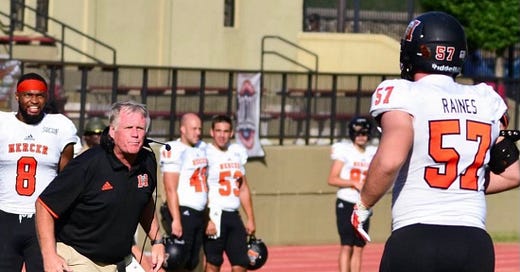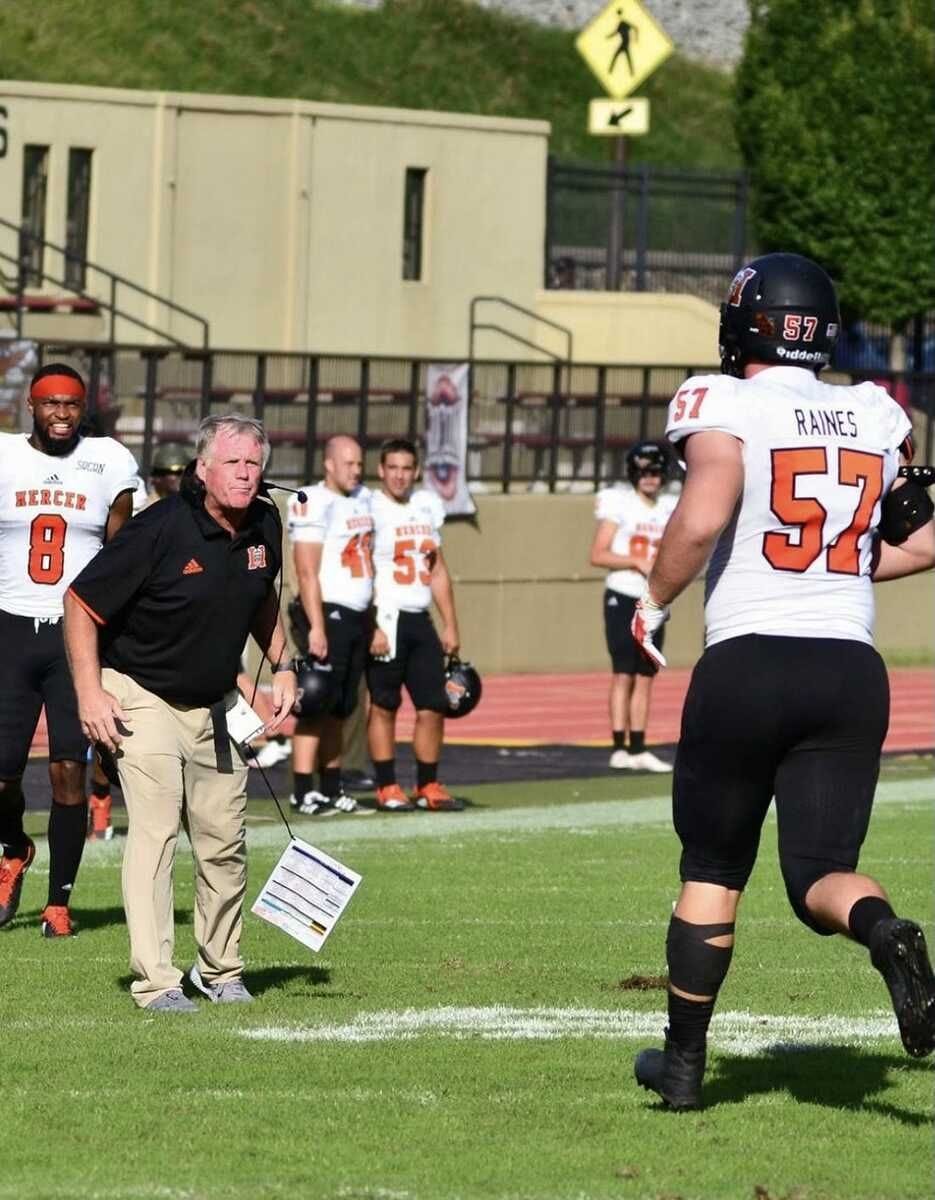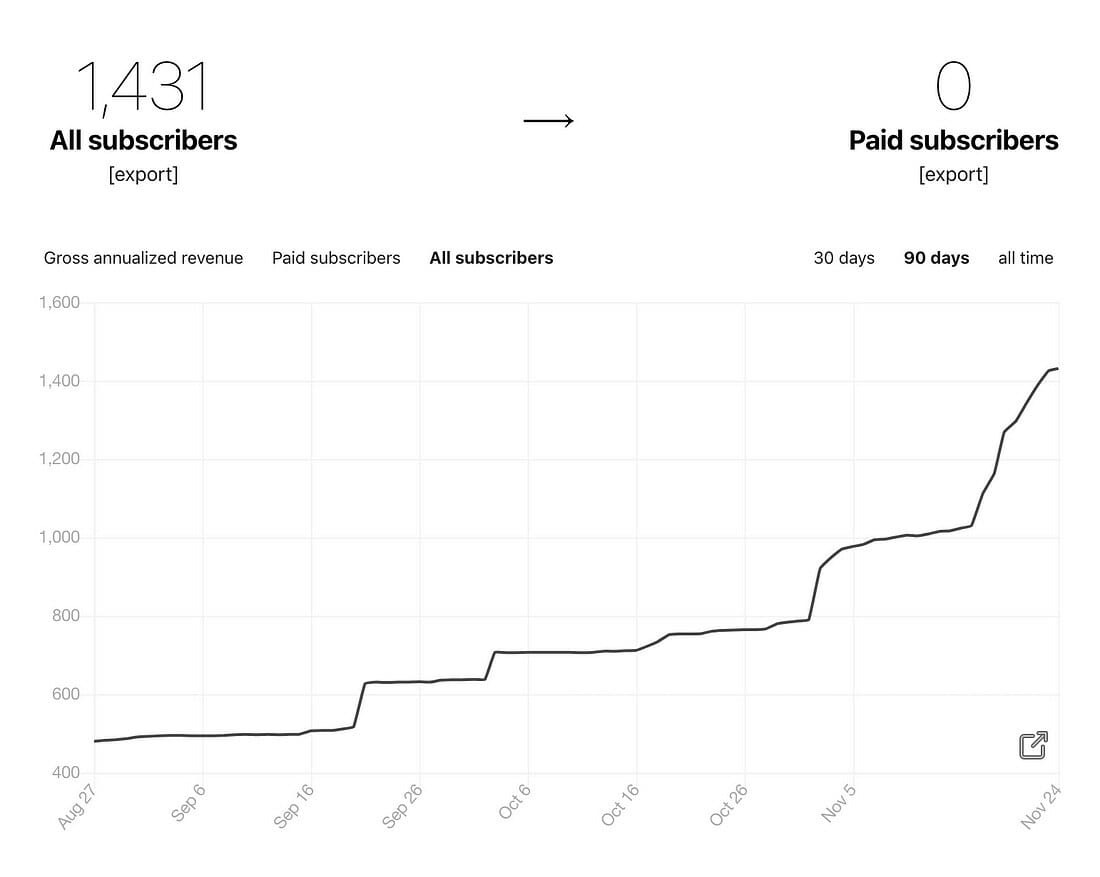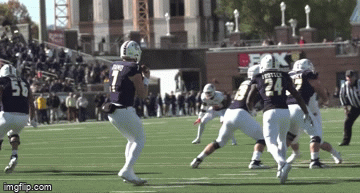External Evidence > Internal Confidence
The folly of self-confidence on the road to achievement.
Welcome to Young Money! If you’re new here, you can join the tens of thousands of subscribers receiving my essays each week by adding your email below.
You can check out my other articles and follow me on Twitter too!
A few days ago, I read this tweet by Stoic writer Ryan Holiday.
And then I read this blog post by Ryan Holiday further elaborating on that tweet. And then I thought back on experiences in my own life. And you know what? Holiday is right. Belief in yourself isn’t just overrated, it can be detrimental to your success.
Let’s dive in.
Another College Football Story
I joined Mercer University’s football team as a walk-on in fall 2015. For the unfamiliar, walk-ons are players without scholarships. For two years, I was a scrub who hardly touched the field. Then in 2017, I had a solid training camp and earned a scholarship. I received decent playing time in 2017, but I felt like I was ready to take that next step going into 2018.
In the 2018 season, the guy in front of me, Isaiah Buehler, was injured for much of the year. With Isaiah hurt, there were three other upperclassmen defensive ends (me, Austin, and Destin) fighting for two spots.
I felt like I should have been starting at one of those spots. When everyone was healthy, I played behind Isaiah while Austin and Destin rotated at the other defensive end spot. However, when Isaiah went down, Austin and Destin started while I was a rotation guy behind both of them. If you have played organized sports at any level, you can relate. It sucks.
So I met with Coach Baker, my defensive line coach, I don’t know how many times to discuss what I needed to do to be the starter. And we talked, and talked, and talked. And I meet with my defensive coordinator, Coach K, about the same thing.
We played 11 games that season. I started zero of those games. Don’t get me wrong, I enjoyed that season and played a lot. But I’d be lying if I said I didn’t feel a bit slighted.
So spring 2019 comes around. Training begins for my redshirt senior season; one last ride. Isaiah and Austin have graduated. Destin and I are the only two upperclassmen defensive ends with playing experience. We have a new defensive coordinator (Coach Adams) and defensive line coach (Coach Hawkins). I’m finally going to be a starter.
I walk in the meeting room for our first film session that spring, and we have the depth chart laid out. I’m a back up behind Destin. One of our linebackers, Logan, was brought in to play the other defensive end position.
I could feel my blood boiling. I wanted to lose my shit. I wanted to scream. I wanted to do a lot of things. But I sat there, kept my cool, and paid attention to our playbook installation. Once the meeting ended and everyone cleared out, I said, “Coach Hawk, can you hang back for a sec?”
“Yessir Raines, what’s up?”
“I was just surprised to see that I’m coming into spring ball second string.”
“Really? Guess that means you should do something about it then.”
I looked at him, started to say something, then stopped.
“Yessir.”
I drove home, sat in bed, and thought about that conversation: Guess that means you should do something about it then.
So I decided to do something about it.
Spring practice consisted of 15 practices across four weeks. 15 opportunities to prove that I was the best player at my position. I got to work.
Less Talking, More Doing
Our performances each practice were scored:
Tackle: +1
Tackle for Loss: +2
Sack: +3
Forced Fumble: +3
Missed Tackle: -1
Loaf: -1
And so on. Additionally, we received a percentage grade based on good plays / total plays. The practice grades would be posted in the locker room for everyone to see each day. I had four goals each practice:
Highest scoring defensive lineman
Top three score out of entire defense (some days one cornerback will have three interceptions. I can’t beat that)
No missed assignments
No loafs
If I don’t miss my assignment and don’t loaf, I’m reliable. If I score high each day, I’m productive. If I’m more reliable and more productive than everyone else through 15 practices, I’ll be the starter.
If I got my ass kicked in a pass rush drill, I would stay after practice to work on my technique. When we competed against the offense, I would line up across from our best guys. I spent four weeks giving myself as many opportunities as possible to showcase my play as much as possible.
No more pleading my case to my coaches. Either perform or shut up.
Did I hit those targets everyday? No chance. Did I win every rep? Absolutely not. But I did hit them most days. And I did win most reps. Those results compounded.
In March we had our exit meetings after spring ball. Coach Hawkins pulled out the total play grade chart from spring practice. Every player who graded out 90% or higher was highlighted. There was only one defensive lineman highlighted: Jack Raines.
“You’re our starter going into the season. Congrats man, keep it rolling this summer.”
The difference between 2018 and 2019? In 2018, I believed that I was good enough to be the starter. I spent a lot of time pleading my case to my coaches. I hadn’t proven that I was the superior option, so all of the explaining in the world wouldn’t improve my status.
In 2019, I proved that I should be the starter. At the end of spring practice, my coaches confirmed that. What does my football story have to do with your career?
Pretty much everything.
Self-Confidence Isn’t Contagious
The problem with believing in yourself is in the description: “yourself”. Sure, you believe that you can accomplish XYZ. That doesn’t mean your coach or boss feels the same way.
Football coaches are paid to win games. Period. Your self-confidence isn’t going to keep the other team out of the end zone. Sure, they could throw you in the game and you ball out. But what if you don’t?
In 2018, I believed that I was good enough to start. But Austin and Destin both had more in-game experience than me. So when the guy in front of me (Isaiah) went down with an injury, the coaches were going to play the guy who gave them the best chance to win the game. Maybe I would have played better than those two, maybe I wouldn’t. But I hadn’t separated myself from the pack in practice, so I hadn’t earned the right to be trusted in the game. If they threw me in as the starter and I suck, that’s on them.
“He told me that we would perform well!” isn’t a sound argument when your position coach is explaining the decision to the head coach.
This isn’t just a football thing.
I applied for several writing roles over the last year. I knew (or at least believed) that I could write well. But why would you hire someone with no real track record of writing? Could I consistently produce original content? Would I burn out after a few months? Those are risks.
So I started writing on my own. A lot.
Someone who has gone from 55 to 1435 subscribers in four months? Someone who writes multiple posts on multiple blogs a week? Someone whose content has been consumed by hundreds of thousands of unique readers?
That someone doesn’t have to have self-confidence. He has evidence, and it speaks for itself.
The only way you can convince someone else to give you a shot is by providing evidence that you’ll get the job done.
You want a promotion at work? Lead projects that advance the company’s objectives. Implement changes that make your team more productive. Keep record of what you have done. Present it to your boss.
You don’t have to convince them what you can do if you’re promoted. You are already doing.
A good litmus test for evidence? Think good vs. great.
Good vs. Great
If you are good at something, you will tell people about it. “Look at this article I wrote.” “Did you see my touchdown at practice?” “Check out this project I designed at work.”
If you are great at something, people will tell you about it. My previous defensive coordinator, Coach K, was a real hard ass. Complements were few and far between. In fact, every time I saw him stomping through the locker room, I thought I was going to be cussed out.
The day after we beat UT Chattanooga in 2018, he stomped in the locker room once again. We made eye contact, and I braced myself for another ass-chewing. He marched up to me, stared me dead in the eye, and said, “Great f*cking work sniffing out that screen pass in the first half, Raines. Tackle for loss on 3rd down? That’s f*cking huge. It’s about time you put that brain to good use.” Then he laughed and walked away.
It was 3rd and 12, the game was tied, and UTC ran a screen play to the running back. It was a well-designed play, and they should have had enough blockers to take all of our guys. Except I knew it was a screen pass as soon as the ball was snapped, and I made a tackle for loss as a result.
I made a big play when the game was tight. I never said anything about it to anyone. My coach made a point to tell me that I did well.
If you make a great play in football, your coach will let you know. If you write a great article, people will message you about it. If you do a great job leading a work project, your boss will tell you about it.
If you find yourself constantly having to tell others about the good stuff that you’re doing, you probably aren’t doing that good. It’s going to take the same energy to tell people about what you’ve done as it will to actually do more stuff. Focus more on doing until others begin telling you how good your work is.
Lebron James doesn’t have to tell people that he’s good at basketball. Ed Sheeran doesn’t have to tell people that he’s a great singer. Warren Buffett isn’t telling the masses that he’s a great investor. Their records speak for themselves.
Now this doesn’t mean you shouldn’t promote yourself. Outstanding high school athletes need to send their highlight tapes to coaches to get noticed. Writers need to publish online so others can read their work. Employees need to send their reports to their supervisors for review.
But once you’re in the arena, you have to shut up and put in the work.
Self belief isn’t just ineffective at persuading others, it can be detrimental to your own progress.
The Fallacy of Self Belief
Self belief causes you to take credit for accomplishments that haven’t yet happened.
When you think to yourself, “I know I could do that,” you are telling your brain that you are fully capable of accomplishing that thing, with zero evidence supporting this assumption.
We take solace in thinking that we can do something, because potential isn’t objective. You can’t tell me what I’m not capable of. You can say what I have done and haven’t done, but you can’t limit my potential.
Here’s an inconvenient truth, no one cares about potential. Potential doesn’t win football games. or increase subscribers. or generate revenue. Potential doesn’t do anything except give the person with potential an overinflated sense of ability.
Your boss isn’t going to give you a promotion based on your potential. Your coach isn’t going to put you on the field based on your potential. Certainly nobody is going to read what you write because of potential.
I now get paid to write for some other parties. You know why they want to work with me? I sent evidence of what I have written, and provided a plan for how I will help them make more money. They don’t have to take a leap of faith on me, because I have an extensive portfolio of work. That’s life.
Sports, careers, they’re the same thing. You move up the totem pole by showing that you can provide value to someone else. Without evidence of the value that you can provide, no one is going to take a risk on you.
Instead of relying on self belief, get out and do the work. Generate evidence of what you can do, then improve upon that evidence. And keep going. And going. And while everyone else is busy thinking about what they could do, you are the one actually doing.
“That’s how you actually end up achieving the things that other people are too busy believing they can do.” - Ryan Holiday
Happy Thanksgiving everyone, hopefully your uncle doesn’t ask you about Dogecoin tomorrow.
-Jack.
I appreciate reader feedback, so if you enjoyed today’s piece, let me know with a like or comment at the bottom of this page!
Young Money is now an ad-free, reader-supported publication. This structure has created a better experience for both the reader and the writer, and it allows me to focus on producing good work instead of managing ad placements. In addition to helping support my newsletter, paid subscribers get access to additional content, including Q&As, book reviews, and more. If you’re a long-time reader who would like to further support Young Money, you can do so by clicking below. Thanks!







